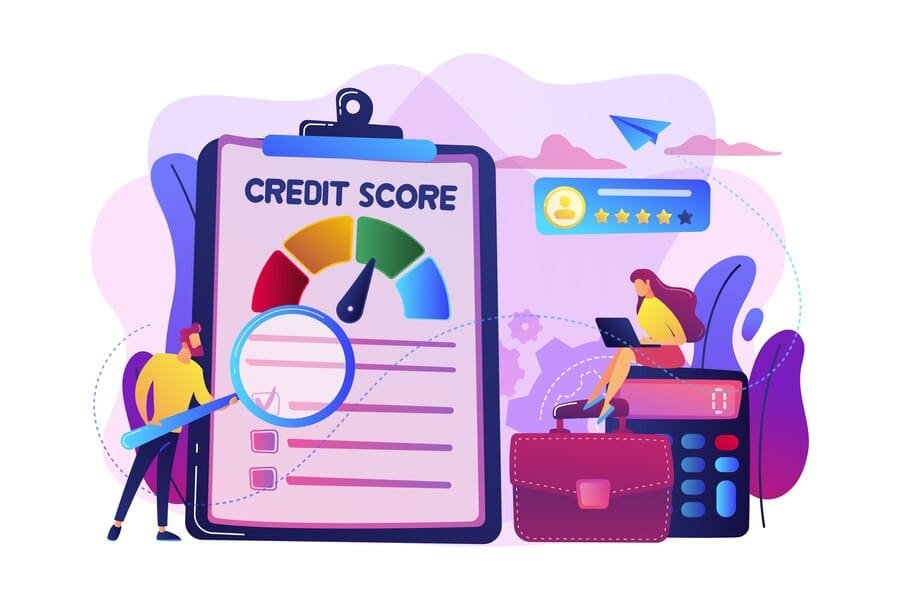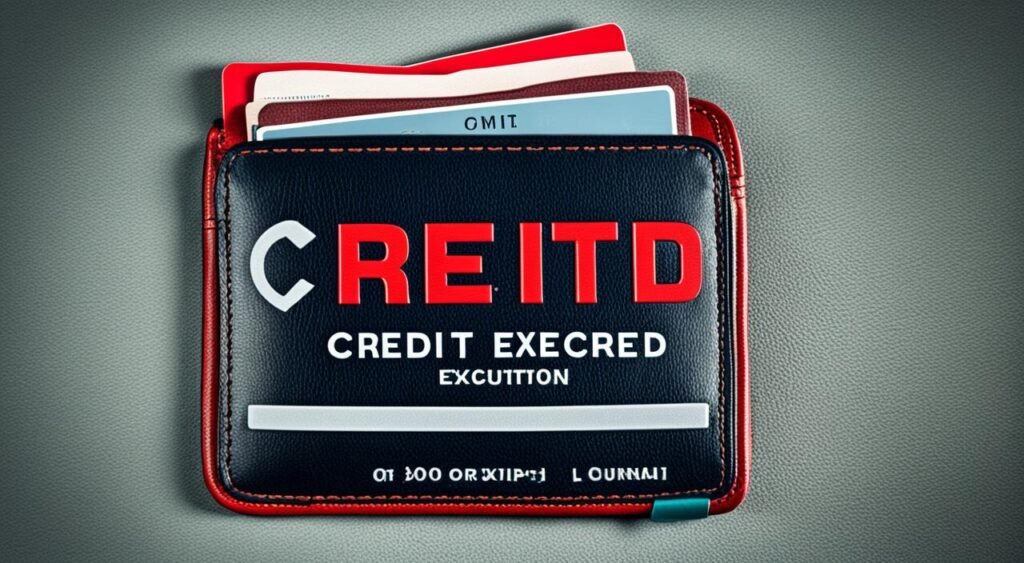Ever Wondered How Your Credit Limit Impacts Your Wallet?
Your credit limit is very important for your finances. It’s the most money your credit card lets you borrow. This limit decides how easy it is to buy things, handle debt, and keep a good credit score. Knowing the ins and outs of your credit limit is vital in today’s world.
A user of the Apple Card recently saw their credit limit drop. This was surprising since they had a high credit score and were paying off debt. It underlines the need to understand what can change your credit limit. Plus, the risks of using too much credit or reaching your max.
This article will dive into credit limits. We’ll look at how they’re set and their effect on your financial health. Whether you want to boost your limit, keep a good spending ratio, or just learn about credit constraints, we’ve got you covered. You’ll gain the knowledge to make wise choices and manage your money better.
Key Takeaways
- Your credit limit represents the maximum amount of credit you can access on a credit card or line of credit.
- Credit card issuers use various factors, such as your credit history, income, and debt levels, to determine your credit limit.
- Maintaining a low credit utilization ratio, which is the amount of credit used compared to your total available credit, is crucial for maintaining a good credit score.
- Exceeding your credit limit can result in fees, higher interest rates, and potentially lower your credit score.
- Regularly monitoring your credit limit and working with your credit card issuer to request an increase can help you improve your financial flexibility and maintain a healthy credit profile.
Understanding Your Credit Limit
Your credit limit is key to your financial health. It shows the highest amount you can spend on a credit card. Knowing what sets your limit and how it links to your credit score guides smart choices in using and managing your credit.
What is a Credit Limit?
The credit limit is the max amount a credit card company will let you borrow. They decide this by looking at your credit record, income, and debts. Limits usually fall between $500 and $5,000, but some folks get more if their money matters look good.
How is Your Credit Limit Determined?
To figure your credit cap, companies check your credit score, payment past, and how much debt you carry. They also consider how long you’ve been handling credit. From all this, they decide the safe amount for you to borrow.
Factors Affecting Your Credit Limit
Your limit might change because of other reasons too:
- Type of Credit Card: Secured or starter credit cards usually have lower limits than the fancier ones.
- Credit Utilization Ratio: This is how much credit you’re using versus what you could use. Keeping this low can help raise your limit.
- Income and Employment: How much you make and your job stability matter too. Bigger incomes and steady jobs often mean more credit to use.
Knowing what impacts your credit limit is crucial for using your credit wisely. With this knowledge, you can work on boosting your credit. This might lead to a higher limit down the road.
The Impact of Your credit limit on Your Credit Score

Your credit limit is key to your credit score. This score matters a lot for your financial health. Knowing how it influences your credit score helps you handle your credit better.
Credit Utilization Ratio
The credit utilization ratio is crucial. It makes up 30% of your FICO score. It’s the balance between how much credit you’re using and how much is available. Using too much of your credit can hurt your score. Experts say it’s best to keep your usage under 30%. Aim for 10% to have the best score.
Payment History
Paying on time affects 35% of your FICO score. If your spending is close to your limit, you might miss payments. This can really lower your score. Make sure you pay on time and keep your spending low. This is vital for a good credit score.
New Credit Inquiries
When you apply for more credit, there’s a hard inquiry on your report. This can drop your score a bit, but not for long. It’s not a big deal. Having more credit available and using less of it can help more than this minor ding.
Consequences of Exceeding Your Credit Limit

It’s key to know what happens if you go over your limit. If you try to buy more than your credit lets you, the sale might not go through. But some banks will let it happen if you signed up for that. Yet, this can cost you extra.
Over-Limit Fees
If you spend over your limit, there’s a fee that could be as high as $35 each time. These fees can be a big drain on your money. They can mess up your financial health.
Higher Interest Rates
Going over your limit might raise your card’s interest rate. Your bank could think you’re struggling. Then, they make it cost more to carry a balance or repay what you owe.
Credit Limit Reduction
Spending over your limit can lead to your credit limit getting cut. This makes it harder to use credit, which can affect your money management. Topping your limit can lower your credit score, too.
It’s very important to avoid these situations. Understanding the risks of going over your limit helps. If you manage your credit wisely, you protect your finances. This also helps you reach your money goals in the long run.
Managing Your Credit Limit
Being smart about your credit limit is key for financial health. Keep an eye on your balance and pay on time. This way, you won’t face issues if you exceed your credit limit.
Monitoring Your Balance
Check your credit card balance often to stay within your limit. It’s smart to watch what you spend. Online or mobile tools from your issuer can help you track your credit use in real-time.
Opting Out of Over-Limit Protection
Consider turning off over-limit protection if it’s available to you. This might stop you from getting charged extra fees. Without this option, you’re less likely to spend over your limit.
Paying Off Balances Quickly
Paying what you owe fast is a great way to handle your limit. This way, you don’t pay extra in interest. It also keeps your credit use low, showing you’re good with money. Doing this could mean more credit in the future.
Requesting a Credit Limit Increase
If you’re getting close to your credit limit or need more credit for a big buy, talking to your credit card issuer is smart. They can help you understand what they look at when deciding. This will guide you to ask for a bigger credit limit the right way.
When to Request an Increase
The best time to ask for more credit is when you’ve been using your credit wisely. This includes keeping how much you owe compared to your limit low, paying on time, and having a strong credit score and history. It tells the card issuer you’re a good borrower, making it more likely they’ll say yes to you.
How to Request an Increase
To ask for a bigger credit limit, reach out to your credit card issuer. You can do this by calling or logging into your account online. You’ll need to share details about your financial situation, like your current income, how much you owe, and if your credit health has changed.
Factors Considered for an Increase
When thinking about your request, your card issuer will look at a few things. This includes your credit score, how well you’ve paid before, how much you owe compared to your income, and of course, the credit limit increase you want. If you’ve been managing your credit well, you stand a better chance of them saying yes.
The Role of Credit Limits in Financial Planning

The credit limit is crucial in financial planning and credit management. It shows how much you can spend on a credit card. This impacts how much credit you have and your ability for big buys. Knowing your credit limit is key for smart credit usage, debt management, and budget planning.
Staying below your credit limit keeps your finances on track and your credit score healthy. Going over can hurt your credit score and add extra charges. This can make it harder to get loans and credit later on.
Understanding your credit limit helps in making better financial choices. It’s important for how you use your credit card, handle debt, and manage your budget. This way, you can keep a good credit utilization ratio, avoid fees, and reach your money goals.
credit limit and Debt Management
Keeping a good credit limit is key to handling debt well. It lets people know how much credit they have. This stops them from spending too much, keeping their credit score high. It also means they can get good deals on loans.
Also read: How Do I Apply For And Obtain A Credit Card?
Avoiding Overspending
Using a high credit limit often leads people to spend more than they should. To avoid this, it’s important to always be aware of your limit. This way, you can keep your spending in check, and not get into too much debt.
Budgeting with Your Credit Limit in Mind
Budgeting well means you should always consider your credit limit. This is essential when planning how to spend your money. It helps you avoid going over your limit, which can be costly. Being careful with your credit is a big part of being financially smart.
FAQs
Q: How does your credit limit affect your wallet?
A: Your credit limit can impact your wallet in various ways. A higher credit limit can provide you with more spending power, but it also comes with the responsibility of managing your credit wisely to avoid accumulating debt that you may struggle to repay.
Q: What factors determine your credit limit?
A: Credit card companies consider several factors when determining your credit limit, including your credit score, income level, payment history, and overall creditworthiness.
Q: Can you request an increase in your credit limit?
A: Yes, you can request an increase in your credit limit from your credit card issuer. However, the decision to approve a credit limit increase will depend on various factors such as your credit history and income.
Q: How does going over your credit limit affect your finances?
A: Exceeding your credit limit can result in costly fees and penalties from your credit card issuer. It can also negatively impact your credit score and overall financial health.
Q: Does a higher credit limit always lead to better credit scores?
A: While having a higher credit limit can potentially lower your credit utilization rate, which may positively impact your credit score, it is essential to manage your credit responsibly regardless of your credit limit.
Q: How does your credit limit impact your credit utilization rate?
A: Your credit limit plays a crucial role in determining your credit utilization rate, which is the percentage of available credit you are using. A lower credit utilization rate is generally better for your credit score.
Q: What should you consider before asking for a credit limit increase?
A: Before requesting a credit limit increase, consider your current financial situation, spending habits, and the potential impact on your credit score. Be prepared to demonstrate responsible credit management to your card issuer.
Source Links
- https://www.credit.com/blog/over-your-credit-card-limit/
- https://www.reddit.com/r/AppleCard/comments/1avuuzm/dropped_my_limit/
- https://www.myfico.com/credit-education/blog/how-overspending-can-affect-your-credit
